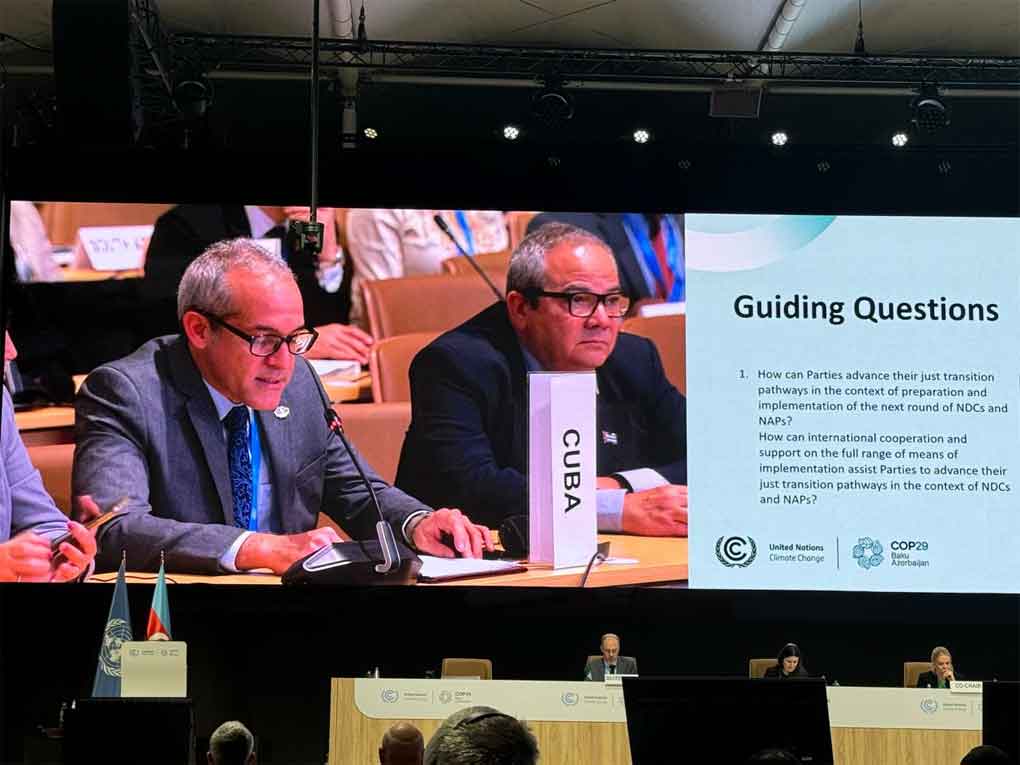Rodríguez said that a fair transition must address the adaptation gaps of countries, and include capacities for science, innovation, financing and implementation of more resilient and inclusive economies, Cuban Ambassador in Baku Carlos Valdés told Prensa Latina.
The diplomat added that the delegation headed by the CITMA minister is also made up of officials and experts from that portfolio, as well as from the ministries of Energy and Mines and Foreign Affairs.
In his speech, the head of the Cuban representation expressed gratitude for the forum to continue to reflect on the nature that the Just Transition Work Program must have and the importance of its reinforcement and operationalization.
From our perspective, the Just Transition Work Program must address the confrontation with climate change in the context of the social, economic and environmental dimensions of sustainable development and the battle of the countries of the South to eradicate poverty, Rodríguez emphasized.
He pointed out that the Work Program must provide space to share experiences and practices, while recognizing the various models, paths and ways of sustainable development that each nation chooses.
In his remarks, Rodríguez stressed that a truly fair, equitable and orderly transition will not be possible if the developed countries do not honor their commitments and assume the financing and means of implementation to achieve the objectives set out in Article 2 of the Paris Agreement.
The international context can facilitate or become a barrier to such a transition, the difference lies in the strengthening of international cooperation, or not, above policies such as unilateral coercive measures and international trade barriers, he said.
My own country, which has been the victim of the longest economic, commercial and financial blockade imposed on any nation in history, finds in this unilateral US policy its main obstacle to sustainable development, the minister concluded.
jg/rgh/gfa









